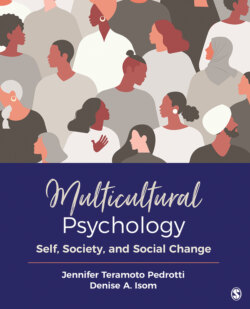Читать книгу Multicultural Psychology - Jennifer T. Pedrotti - Страница 58
На сайте Литреса книга снята с продажи.
Worldview Related to Socioeconomic Status
ОглавлениеI’m a hard worker and I always have been. There wasn’t much money growing up, and so I had to work a lot on our family’s farm just to make sure we made ends meet. No time to play sports or sit around reading a bunch of books. I worked from the time I was 8 years old to help my parents out, and I was glad to do it. There were a few times when I was growing up that we almost lost the farm because of taxes and poor crops. We all had to pitch in double during that time, and sometimes that meant skipping school or sleep, but we made it work. I’m raising my kids this same way, and so when my son turned 14 this last year, I told him that he needed to start putting in more time on the farm so that he can start contributing to the family. I told him he couldn’t try out for the track team because practice is every day, and there’s way too much to do on the farm to be able to adhere to that kind of schedule. His teacher called me and said that his homework is slipping, but I told her that he is lucky to be learning in school—after school he needs to do real work that adds up and prepares him for the real world too. She didn’t get it. Books can’t help you lift bales of hay or drive equipment, and we don’t have money for college anyway—what’s the point?
—Steve, age 58
If you are a student in college right now, the worldview above might be one to which you have a strong reaction. A common response from someone who feels college has value might view Steve’s comments above as shortsighted and even as problematic parenting. Others of you might have heard Steve’s ideas from some of your own family members as you began your journey as a first-generation college student. Regardless of your potential agreement or disagreement with Steve’s ideas above, consider some of the reasons he may have adopted this worldview. First, it seems clear that hard work as a positive activity was ingrained early on in Steve’s worldview from his parents. In addition, “work” appears to be defined for him more as manual labor than as studying or other activities. In Steve’s view, this type of work is what will help his son the most to prepare for life. In addition, Steve’s view doesn’t include the option of a college education because of his limited socioeconomic status. In our country, approximately 30% of adults are college graduates (US Census Bureau, 2017). The price of tuition and fees for a four-year, in-state, public college education rose approximately 3.2% beyond inflation every year from the 2007–08 academic year to the 2017–18 academic year (College Board, 2017). Therefore, many families may not be able to see a way to put their children through college. Thus, worldviews such as Steve’s may be supported by many who do not have the experience of college themselves. It is important to be able to understand the potential origins for this type of worldview even if one does not hold the same ideas.
